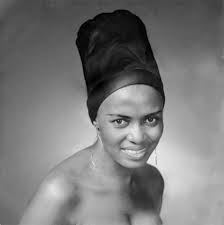Miriam
Makeba
Mama Africa
Africa has her mysteries and even a wise man cannot understand them. But a wise respects them.
Africa has her mysteries and even a wise man cannot understand them. But a wise respects them.
In my lifetime, I have heard many women call and be called Mama Africa. I thought it just another phrase even if the texture of the name felt like so much more, felt like something beyond royalty.
In time, I understood the pain, strength and sheer bravery that outlined the name with gold, diamonds and pearls befitting only those of pure royalty. They cannot be seen but are felt as one's lips move to form the words Mama Africa.
Indeed, they breath. These words are alive.
Hidden between layers and layers of old junk in my late grandmother's rusty looking 2 bedroom apartment, I found it. Though it was covered in dust, I could almost swear I saw it beam with golden rays like a grail of some sort. It enchanted my mind. I was met with the soul that gave life to the words Mama Africa: Miriam Zenzile Makeba.

Miriam Makeba's connection with the African students in the United States during the 1960s was deeply significant. At the time, she was already an internationally renowned singer and activist, known for her powerful performances and her advocacy for African causes.
When Makeba arrived in the U.S., she found herself embraced by African students who were studying there. They saw in her not only a talented musician but also a symbol of African pride and resilience. Makeba provided a sense of home and belonging for these students, many of whom were far away from their own countries and experiencing the challenges of being foreigners in America during a tumultuous period in history.
Makeba's music resonated deeply with these students, as it spoke to themes of freedom, identity, and cultural heritage. Through her performances and her interactions with the African student community, she fostered a sense of unity and solidarity among them.
It was during this time that the African students affectionately bestowed upon her the title of "Mama Africa." This nickname reflected not only Makeba's maternal and nurturing demeanor but also her role as a cultural ambassador for the continent. She used her platform to amplify the voices of Africans everywhere and to advocate for the liberation and dignity of her people.
Makeba's connection with the African student community in the U.S. highlights her broader impact as an artist and activist. She not only inspired audiences with her music but also provided support and encouragement to those who looked to her as a guiding light during a time of social and political upheaval.